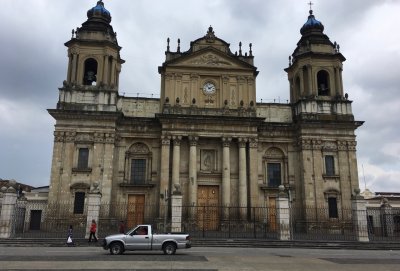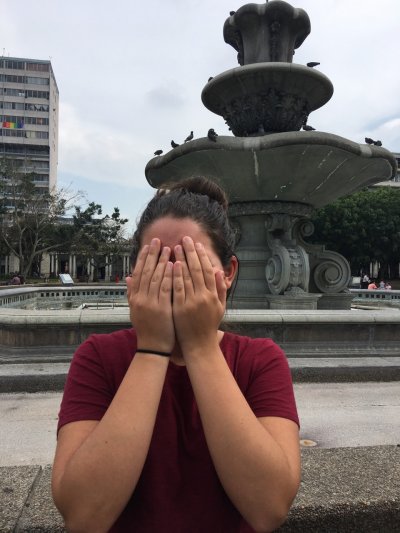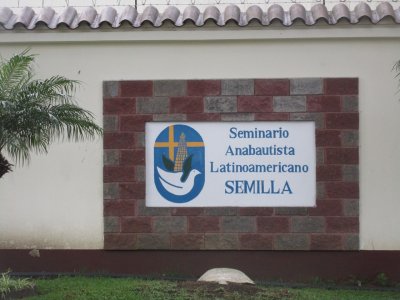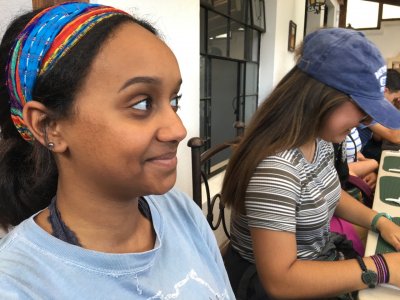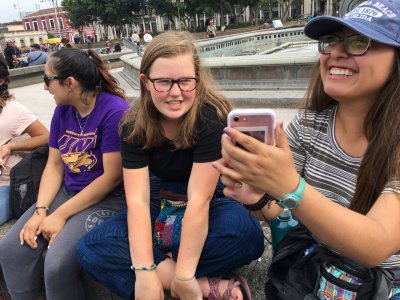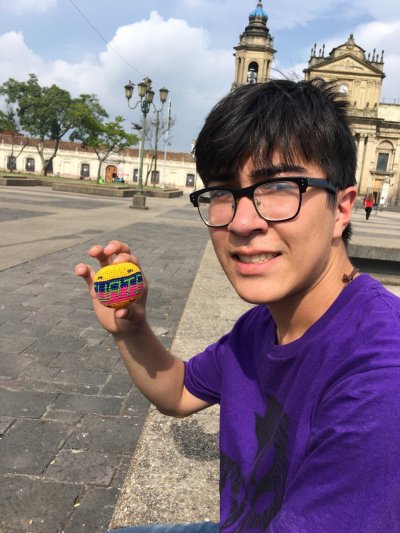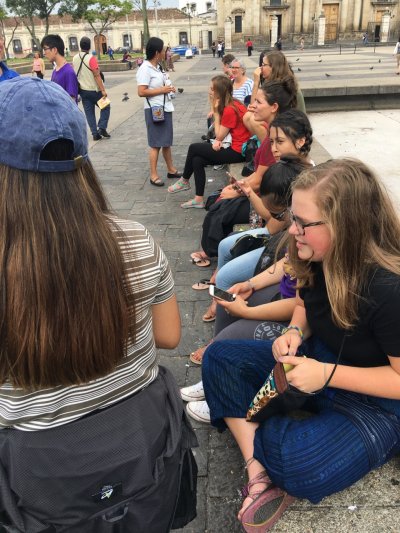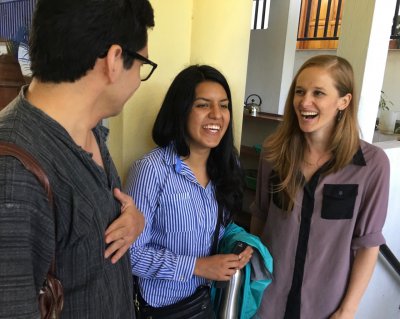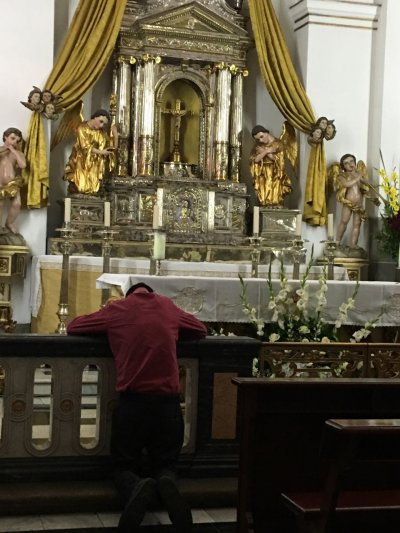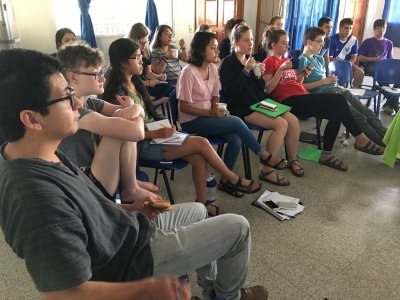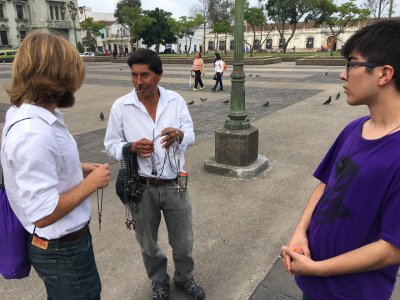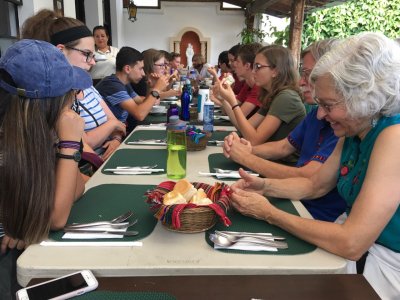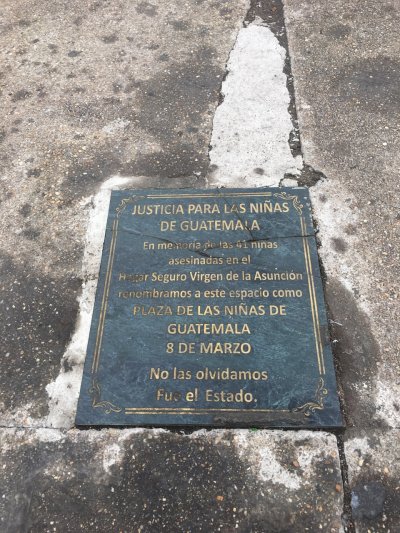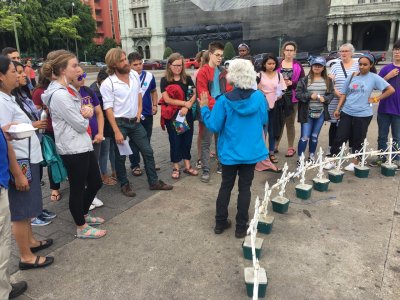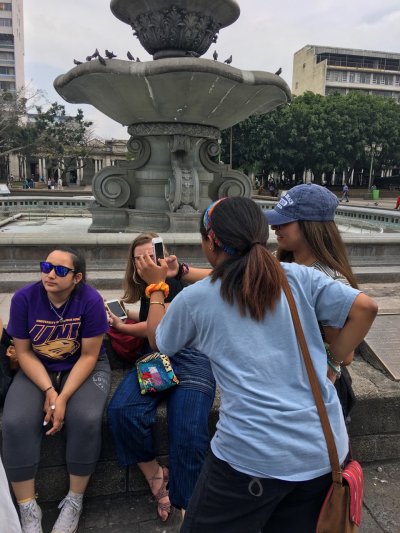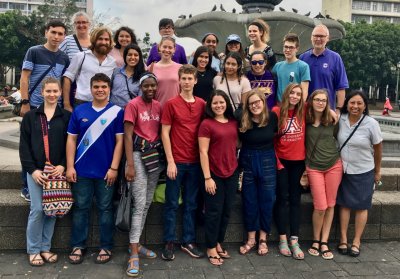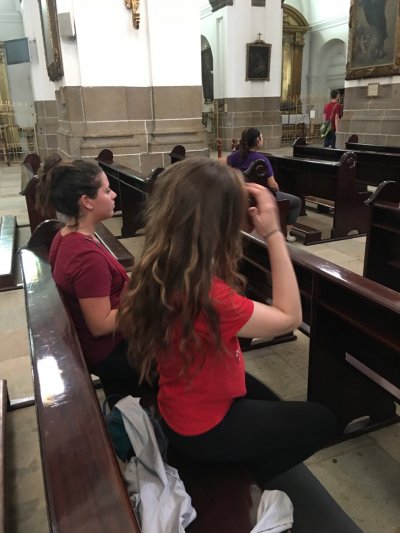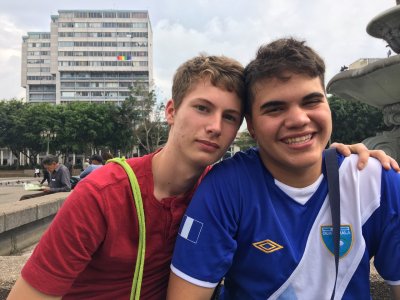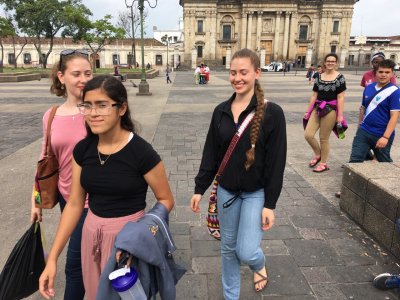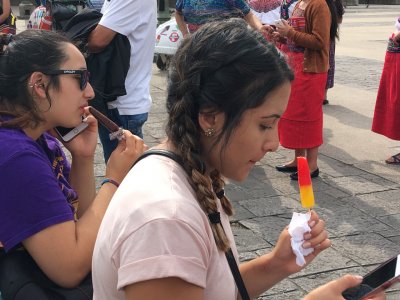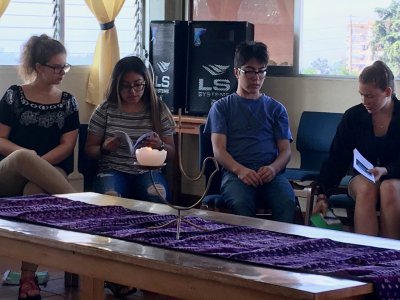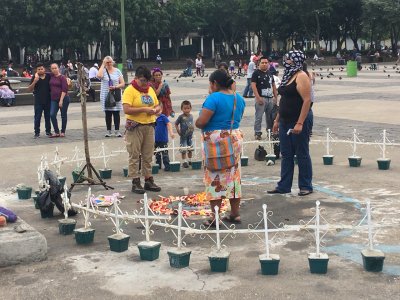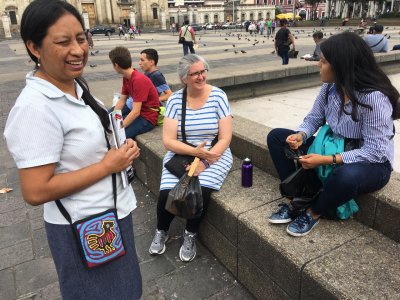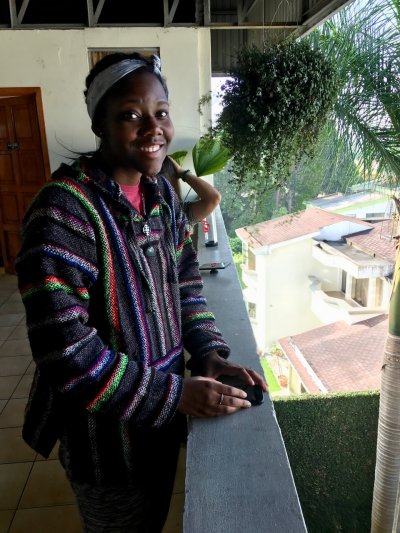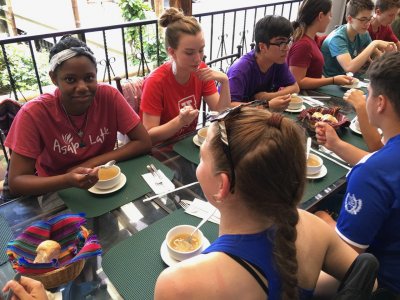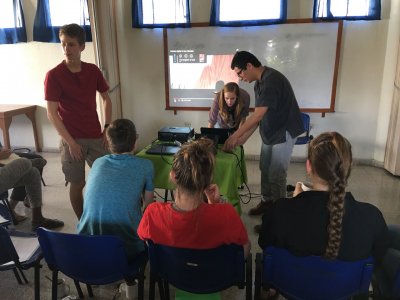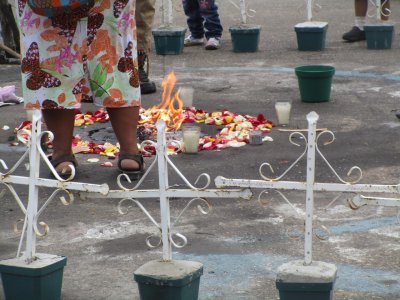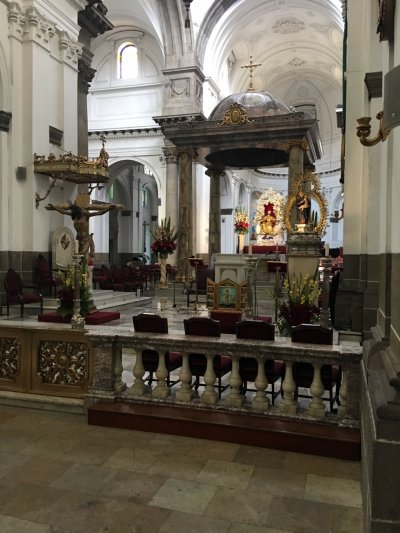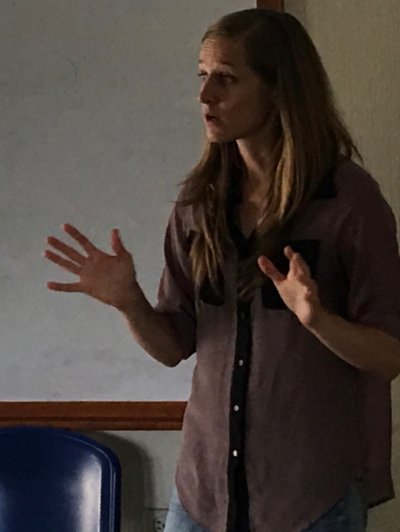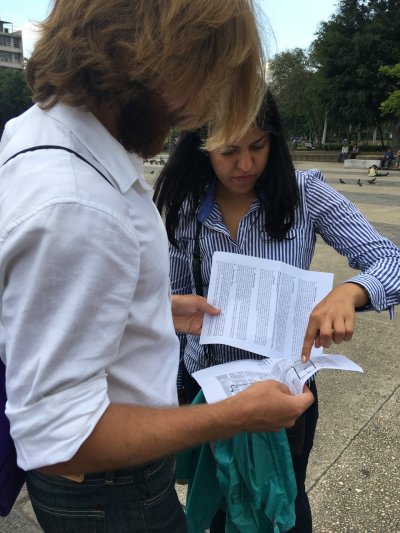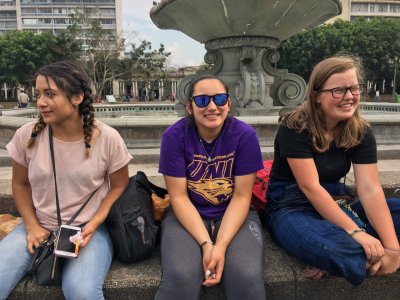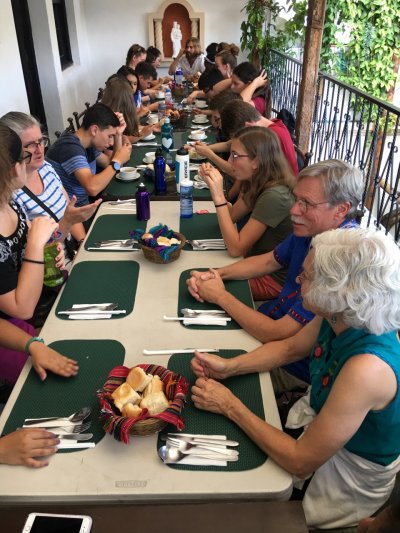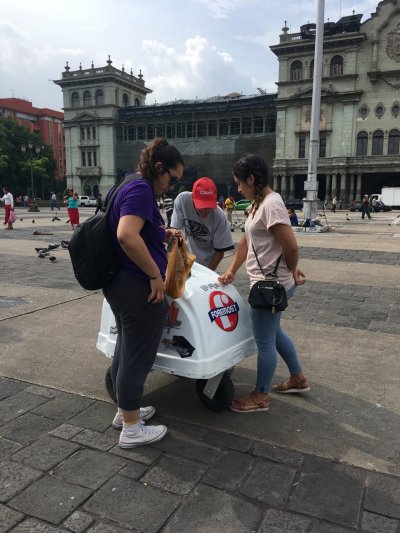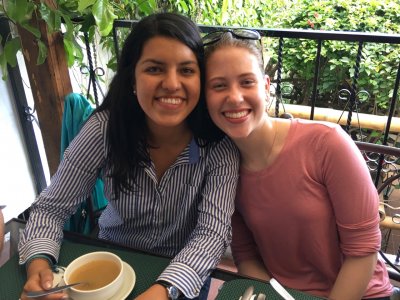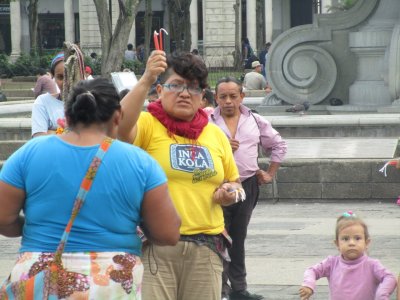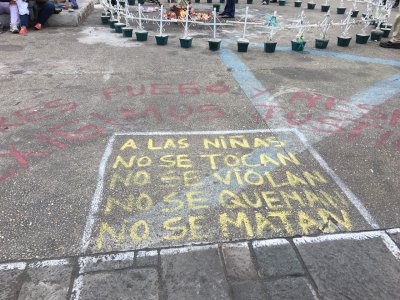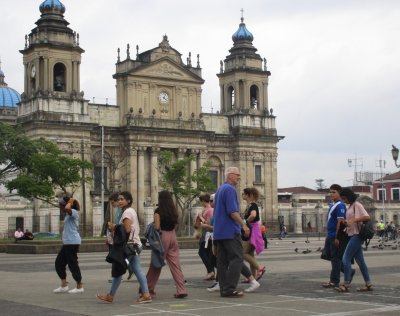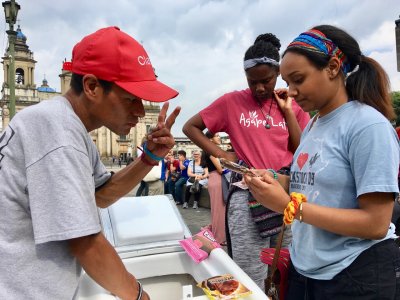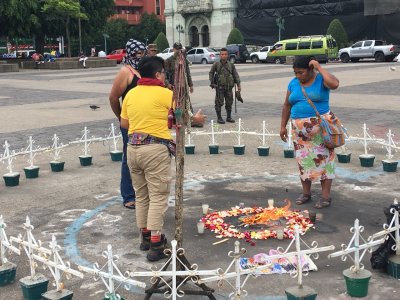Human Rights and Downtown Guatemala City
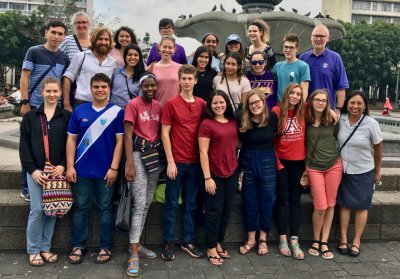
After breakfast and centering prayer this morning, we had an hour and a half of relaxed time, so students rested, caught up on their journals, or chatted with each other. At 10:30 Rachel Beveridge, who runs an NGO in Central America and is married to Israel Ortiz, spoke about human rights. Rachel drew attention to human rights violations during Guatemala’s civil war, and the U.S.’s role in deepening these violations through training Guatemalan soldiers — and Rios Montt, its repressive dictator of the early 1980s — at the School of the Americas, a U.S. military operation that trains soldiers from around the world how to torture others. Ninety-three percent of the violence and killing of the civil war was done by Guatemalan state forces, not guerillas.
Rachel also drew attention to the severe human rights violations the U.S. is engaged in now with separating children from their parents at the U.S.’s southern border, an act of cruelty that has been denounced by the Human Rights Commission of the United Nations and by many other countries. Many of those separated families are from Guatemala and other central American countries.
In addition, Rachel noted that 59 percent of Guatemalans live in poverty, receiving less than $1,400 a year, and four out of five indigenous people live in poverty. She finished by offering some hope through organizations around the world that are working at human rights abuses, and ways we can get involved: speak to our own government and to those in our churches; vote; participate in protests; and contribute to non-governmental organizations that work at these issues.
This afternoon we had dinner in downtown Guatemala City and then spent a couple of hours in Zone 1. A few students have had minor stomach ailments, and Sim stayed behind to rest. The rest of the group went in sub-groups to visit the Central Market, the Metropolitan Cathedral and other sites in the region. Just before we left the plaza, we were able to see a spontaneous ritual being performed in front of the National Palace. Three women performed a Mayan ritual honoring the 41 young women who were killed just over a year ago after being locked into their dormitories at a girls’ home on the edge of Guatemala City. A fire started and all of the girls housed in the facility were killed. As today’s protestors enacted the ritual with candle-lighting and chanting, and with words that included noting that the girls had been “assassinated by a corrupt government,” a group of four armed soldiers watched.
As I write this, we are collectively watching the dramatic film “Romero,” which tells the story of former Salvadoran Archbishop Oscar Romero, who was martyred in 1980. Because there are many parallels with Guatemala’s civil war, we wanted the opportunity to see this depiction of Romero, who was beatified by the Catholic Church within the last several months.
Thanks for keeping us in your thoughts and prayers during these last four days of the Study-Service Theology Term in Guatemala.
